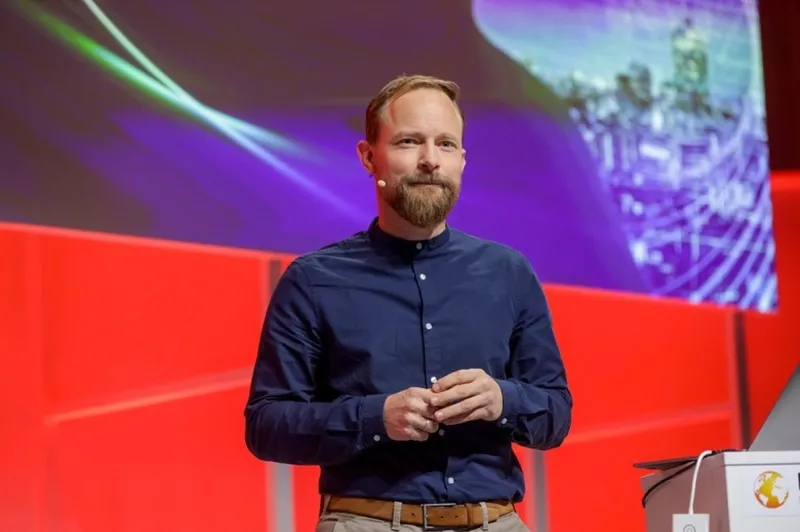In the future travel planning will be supported by personalised travel agents and multimodal online platforms. Examples of this were presented by Dr. Stefan Ebener of Google Germany at the ITB Berlin
With every seat taken in the hall at the ITB Berlin Convention it was obvious that the organisers had struck a nerve with their choice of subject, ”Generative AI”. On Tuesday afternoon Dr. Stefan Ebener, Head of Customer Engineering at Google Germany, gave visitors to ITB an insight into the future. By video they were able to experience a Google search that differed fundamentally from what they have previously experienced: a search that is both interactive and multimodal. “Within just a few months this new Google search will become accessible worldwide”, Ebner revealed, and he predicted that the impact on the travel sector will be massive.
Already, Ebener reported, the traditional search using search terms would no longer be the method used by millennials and Generation Z to obtain inspiration for new trips or to prepare for their journeys. “Searches will be conducted above all using images, via Google image search and using photos on Instagram“, Ebener explained. From this process Ebener also obtained a useful tip for tourism marketing: fascinating and convincing visual offers, especially in the form of photos and videos, are the key to attracting new visitors.
Another trend is that of the hyper-personalised travel assistant, capable of dealing with various media, providing useful support prior to and during the trip. “Most people spend more time in planning, preparation and dreaming than they do on the actual trip itself”, according to Ebener. Even at the booking stage such assistants are able to enquire about and implement particular wishes, for example in the case of travelling with small children. Where doubts exist it can also use a video recording to establish whether accident damage to a rented car is covered by the insurance. The magic word here is multimodality – users can apply various media, photos and videos too, in order to interact with the system
The key to much of this is Google‘s new Gemini AI, which can be used by accommodation providers, for example, to automatically produce descriptions of buildings on the basis of videos. It has been possible to train the software so that it addresses the needs of its customers in a way that is precisely customised to specific target groups. Ebener explained that one should think of an AI system in much the same way as a trainee who has newly joined the company. The latter may be highly qualified and well informed about the world but initially has no idea what it is that the company actually does and how to serve the needs of customers. However, once the AI has been instructed it becomes a highly effective tool. “In this case the decisive factor is not the model that is used but the platform and the real time access to information ", explains Ebener.
